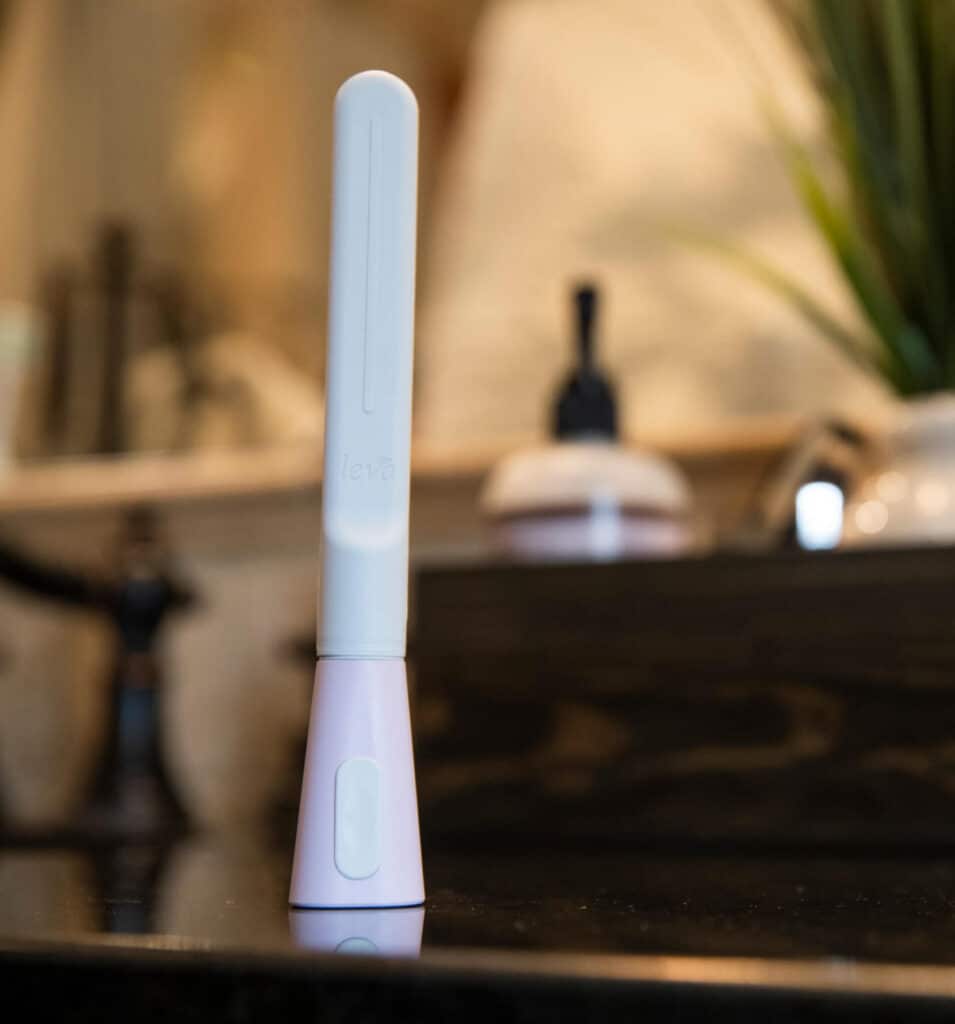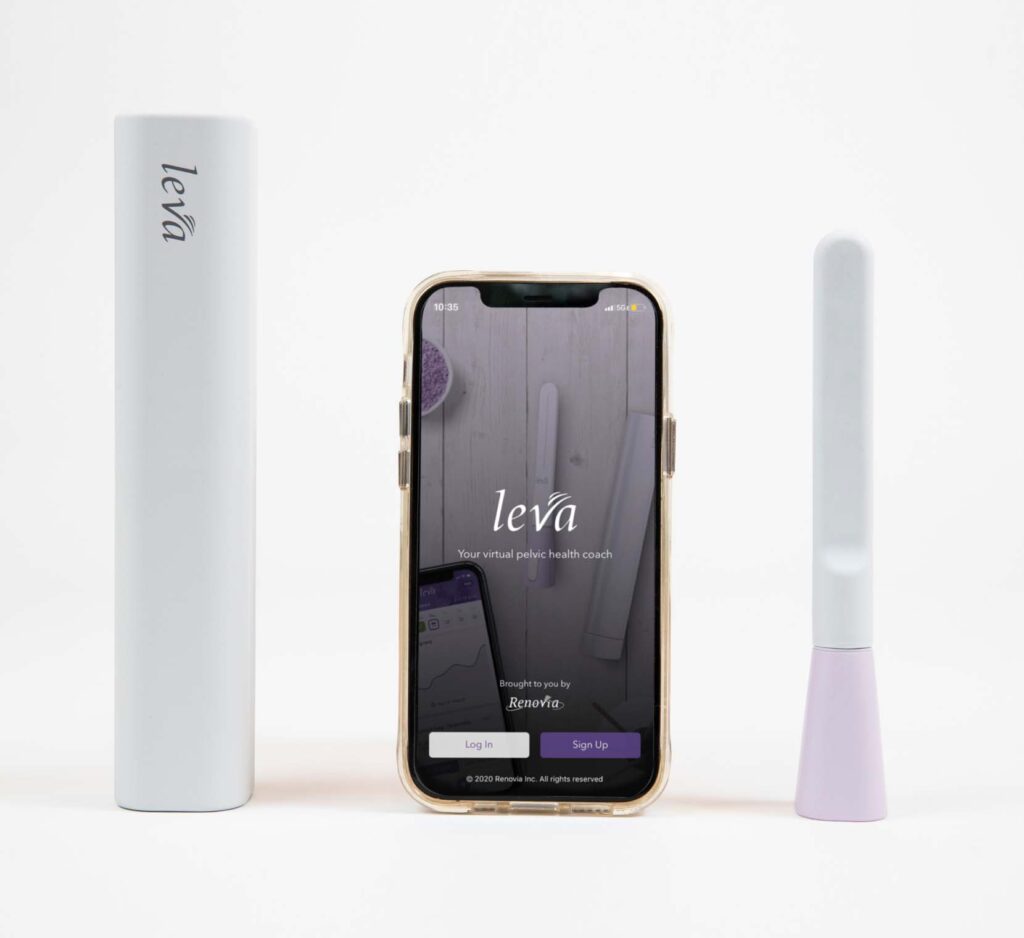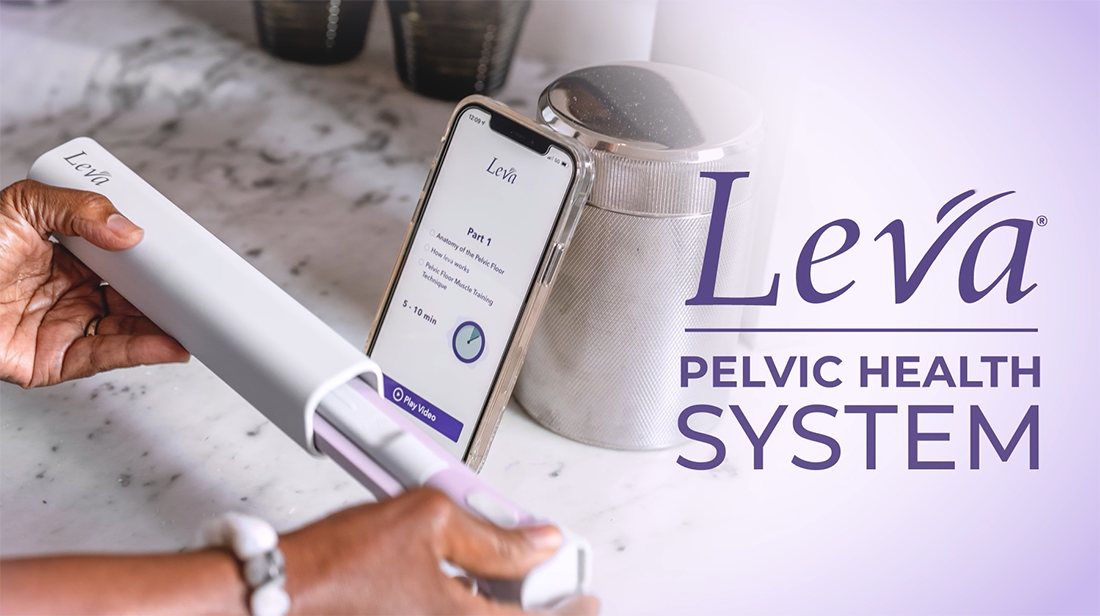Pelvic Floor Anatomy, Function and How Leva Works
Get a visual tour of the pelvic floor anatomy and bladder function and see how pelvic floor muscle training with Leva is used for the treatment of UI in women.
Medical Animation & How Leva Works:
Stress Urinary Incontinence & How Leva Works:
Urgency Urinary Incontinence & How Leva Works:
Fecal Incontinence & How Leva Works:
The Leva Pelvic Health Program

01: Leva Device
- These sensors communicate with the Leva app on the user’s smartphone.
- Inserted vaginally, the flexible Leva device is embedded with motion sensors along the length of the device that detect movement during pelvic floor muscle training.

02: Leva App
- The sensors on the Leva device communicate with the Leva app and provide the patient with real-time, visual guidance of their pelvic floor muscle training and guides the women through alternating 15 seconds of training and rests for a total of 2.5 minutes per session.
- The app tracks a user’s progress over the course of their 12 weeks of treatment.
- Mini education modules are provided to the user daily.

03: Leva Women’s Center
- The Leva system is supported by the Leva Women’s Center which is a team of educators and coaches.
- Educators are dedicated to helping patients get the most affordable access to Leva and as such perform Benefits Verifications (and Prior Authorizations as needed) for every patient.
- Coaches are dedicated to helping patients with their training, ongoing adherence support and reaching their personal symptom goals.

04: Leva Patient Reports
- The patient report captures adherence and symptom data for every patient you have using Leva and is shared securely with you, so that you are able to remotely monitor your patients’ progress over time.
Recognized as a 2023 medical breakthrough in women’s health by AARP.





